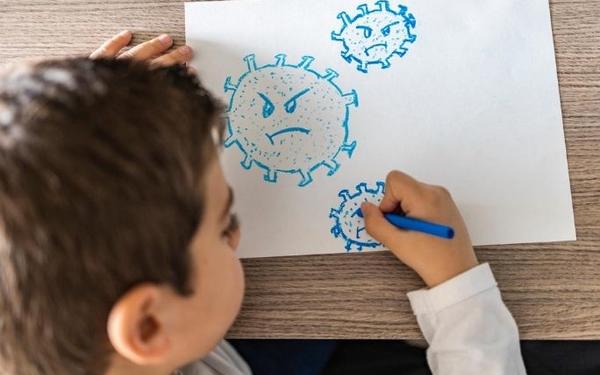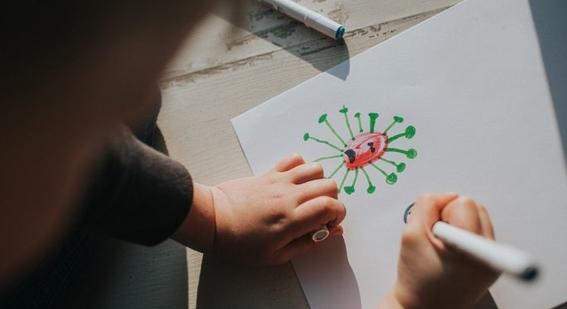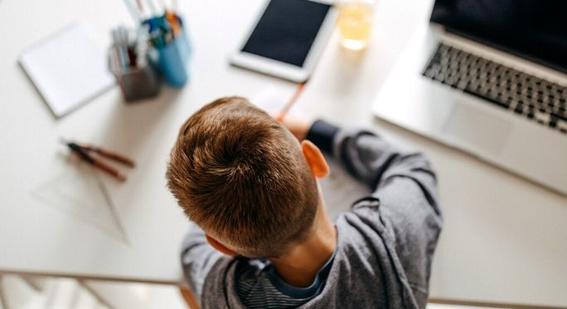COVID-19 and closing the gap
1.5 billion children – that is, 75% of enrolled students in 140 countries around the globe – have been out of school during the COVID-19 pandemic. Never before have school closures been in effect on such a global scale. But are school closures impacting all learners in the same ways? Is COVID-19 increasing social inequality through its impact on education?

Our international panel of education thought leaders seek to tackle these questions as we look at the impact of Covid-19 on education, particularly on disadvantaged students; what can be done to mitigate the negative impact of the pandemic on education equity; and what it means for the future of education.
Optimism in the face of challenges
Despite challenges facing education systems around the world, there are reasons to be optimistic. Dynamic initiatives have been borne out of this crisis, along with a sense of collaboration between teachers, parents and communities. The innovative and responsive teaching workforce is garnering more appreciation than perhaps has been seen before. The drive to support our teachers, parents and, of course, the children whose education and development has been so drastically restricted has prompted rapid changes. But how do we maintain these efforts going forward, and mitigate some of the negative impacts of school closures? How can we build more resilient education systems for the future?
In this webinar report, Dr Rukmini Banerji, Dr Rabea Malik, Dr Ricardo Sabates, the Rt Hon Charles Clarke and Vikas Pota offer their insights and guidance for a wholly strategic, proactive, cross-sector, approach to the future of education post-pandemic. They are in agreement that, to achieve this, teachers must be consulted at every stage, online provision must move from being supplementary to being integral in the future of education, and education spending must be guarded above all. They suggest that there needs to be a ‘sense of celebration’ when schools reopen, ‘to let parents know that children are welcome again', that teachers and ministries and departments of education have prepared to welcome them back.
A global perspective
The need to get children back in school safely on a regular basis, whether physically or digitally, is critical. But we need to consider the individual risks and challenges facing different cohorts of children, as well as recognising the large learning gap that existed in many places before the pandemic. This will involve targeted strategies for getting at-risk children back to school and engaging them in learning once again. As Dr Banerji cautions, we should be wary of ‘a rush to get back to the curriculum’ if we are to avoid further learning loss.
Researchers and educators alike have realised that access is a top priority for reducing learning loss, and Mr Pota highlights six new randomised control trials that are being held around the world to look at the impact of the use of radio, television, and other technological inventions, to improve children’s access to learning in varying contexts.
Drawing on research from Pakistan, Turkey, India and Ghana, the panel offers their insights on learning loss and draws on findings from other crisis-contexts to inform and support governments and educationalists' plans for the future of education.
Resilience and sustainability
The pandemic and lockdown has shown that educational capacity needs to be expanded and strengthened. Mr Pota sees a space being created for the teacher workforce to have an influence and an impact based upon what they are seeing on the frontline, while Dr Malik discusses the benefits of allowing for flexibility and giving more autonomy to schools and teachers.
Predictably, technology was of great interest to the panel in thinking about resilient and sustainable education systems for the future, as was collaboration and leadership, but also the wellbeing of the teacher workforce and the role of the community. Building resilient education systems generates incredible returns, yet this is one area that is largely ignored in both developed and developing countries.
Any strategy – at government and even individual school level – will have to include short- and long-term planning to carry it forward. As Charles Clarke says, ‘the two key words to the new world are going to be resilience and sustainability. And those are going to be things that every part of every education system is going to need to be able to achieve.’
Hosted by Ben Knight, this webinar and report bring together insights and guidance from thought leaders from different corners of the world. Together, they discuss the impact on disadvantaged communities, review responses to school closures in different educational contexts, and offer solutions for how education policy and practice might need to adapt in the long term.
Meet the panel
Ben Knight (Host)
Ben Knight is Director for Language and Pedagogy Research at Cambridge University Press. He leads on using high quality academic research to develop more effective learning materials and resources. With his expertise in curriculum development and pedagogical research, he helps to underpin Cambridge’s educational resources with research-based insights and conceptual models.
Ben has taught in schools and universities in Europe, Africa and Asia, and has worked on educational reform projects from Mexico to Japan. He also worked on a range of projects developing digital solutions for learning and assessment, both for language and vocational skills.
Rt Hon Charles Clarke
Rt Hon Charles Clarke was MP for Norwich South from 1997–2010, and in 2002 became Secretary of State for Education and Skills. He served as Home Secretary from 2004–06.
As Education Secretary, he established the Education World Forum which is one of the largest gatherings of Education Ministers in the world. Since leaving parliament, Mr Clarke has worked in the field of international education, including advising the Open University, Bridgepoint Education, INTO University Partnerships, Infinitas Learning, MACAT and LJCreate and is currently a consultant on education reform to Cambridge Assessment International Education and Cambridge University Press.
Ricardo Sabates
Ricardo Sabates is Professor of Education and International Development at the Faculty of Education, University of Cambridge. He is also a member of the Research on Equitable Access and Learning (REAL) Centre and the Cambridge Network for Disability and Education Research (CaNDER).
Ricardo’s areas of research focus on inequalities in access and learning as well as the role of education in reducing wider social inequalities over the life-course. Ricardo has extensive experience collaborating with researchers in the Global South, particularly in Ghana, Tanzania, Ethiopia, Rwanda, India and Pakistan. Current work in India with the ASER Centre and Pratham Educational Foundation is looking into mechanisms for enhancing school accountability from the grassroots. This project, as many others, has been affected by the current pandemic, but potentially has produced new opportunities for supporting the most marginalised in the future.
Vikas Pota
Vikas Pota is passionate about the transformative power of a good education for all and has built and led an education foundation that focuses on teachers as the agent of change. A Visiting Practitioner in Education at Harvard University, an Honorary Lecturer at UCL Institute of Education, and Senior Leaders Fellow at the Centre for Science & Policy at Cambridge University, he was selected by the World Economic Forum as a Young Global Leader for his work in education.
Vikas has spearheaded the training of over 25,000 teachers and has pioneered an innovative technology platform to reach marginalised girls in Sub-Saharan Africa as well as addressing the refugee crisis using this same platform. He convenes the Global Education & Skills Forum and organises the Global Teacher Prize, which seeks to celebrate the achievement of classroom teachers and uplift the status of the profession.
Dr Rabea Malik
Dr. Rabea Malik is a sociologist of education. She is Asst Professor at the School of Education at LUMS and a Fellow at the Institute of Development and Economic Alternatives (IDEAS), a policy think-tank in Lahore. Her research focuses on inequalities in education, early childhood education, and reforming delivery systems for social services.
Dr Rukmini Banerji
Trained as an economist in India, Dr. Rukmini Banerji completed her BA at St. Stephen’s College and attended the Delhi School of Economics. She was a Rhodes Scholar at Oxford University and earned her PhD at the University of Chicago.
Dr. Banerji worked as a program officer at the Spencer Foundation in Chicago for several years before returning to India in 1996 to join Pratham as part of the leadership team. There, she led the organisation’s research and assessment efforts, which has included the internationally acknowledged Annual Status of Education Report (ASER) since 2005, and served as director of the ASER Centre in New Delhi for ten years.
Over the years, she has represented Pratham and the ASER Centre in various national and international forums and is a member of committees both in India and abroad. She writes frequently on education in India and enjoys creating books and stories for children




